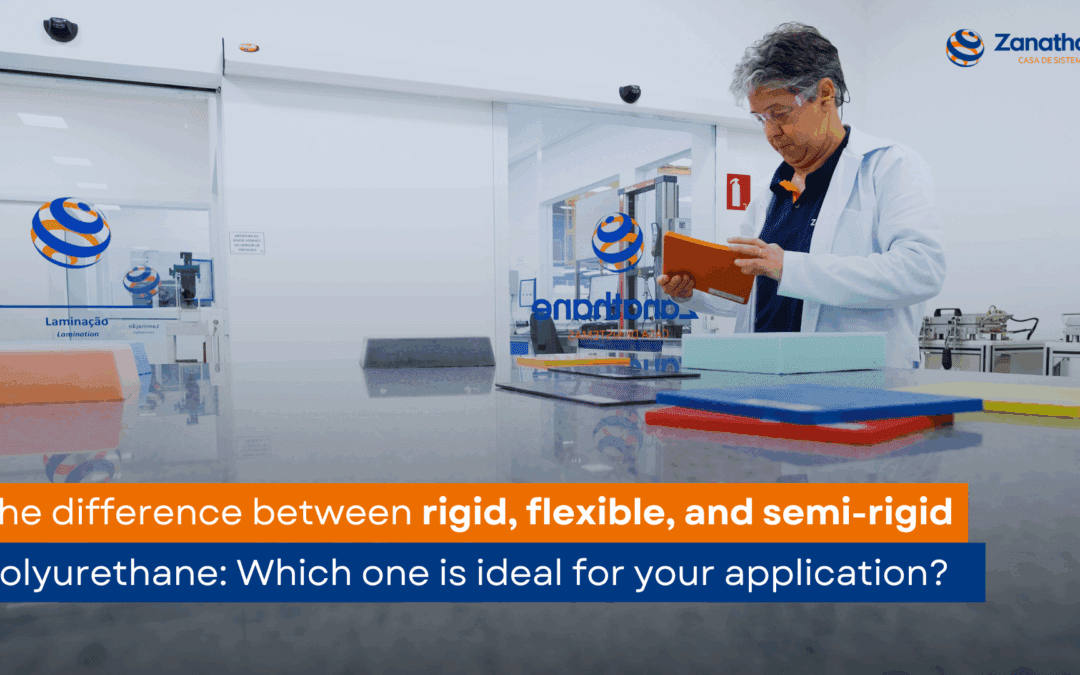Polyurethane is a versatile material widely used across various industries, from automotive to construction, due to its unique properties. However, choosing the right type of polyurethane for each application is essential. But do you know the difference between rigid, flexible, and semi-rigid polyurethane? Let’s explore their characteristics and applications to help you make the best decision.
Rigid polyurethane: Strength and insulation
Rigid polyurethane is known for its high mechanical strength and excellent thermal insulation capabilities. It is frequently used in applications that require durability and protection, such as:
- Thermal insulation panels for the construction industry;
- Industrial refrigeration, including cold rooms and freezers;
- Structural components for the automotive and aerospace industries.
This type of polyurethane has a closed-cell structure, making it lightweight yet extremely strong and efficient at retaining temperature.
Flexible polyurethane: Comfort and impact absorption
Flexible polyurethane is widely recognized for its elasticity, comfort, and impact absorption capacity. It is commonly used in applications that require softness and flexibility, such as:
- Automotive upholstery and transportation seating;
- Furniture and mattresses for enhanced comfort and ergonomics;
- Sports and protective equipment, including helmets and shoe soles.
Its open-cell structure allows for air circulation, providing a more comfortable user experience.
Semi-rigid polyurethane: A balance between strength and flexibility
Semi-rigid polyurethane combines characteristics of both rigid and flexible types, offering moderate strength and some flexibility. Its main applications include:
- Automotive interior panels, such as door panels and consoles;
- Headrests and steering wheels, where both comfort and durability are essential;
- Industrial technical parts that require impact absorption and long-term performance.
This type of polyurethane is ideal for applications needing a material that withstands moderate impacts without losing its original structure.
Which one is right for your application?
Choosing the ideal polyurethane depends on the requirements of your project. If you need insulation and strength, rigid polyurethane is the best choice. For comfort and flexibility, flexible polyurethane is ideal. If you require a balance between these factors, semi-rigid polyurethane may be the perfect solution.
At Zanathane, we specialize in developing customized polyurethane systems for various industrial applications. With advanced technology and a highly qualified team, we help our clients find the best solution for their needs.
Want to learn more about how polyurethane can optimize your products and processes? Contact our team of specialists!
